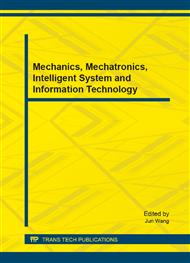[1]
Howard James Bampton, Solving imperfect information games using the Monte Carlo heuristic, Knoxville, Master thesis: University of Tennessee ( 1994).
Google Scholar
[2]
Denis Papp, Dealing with imperfect information in Poker, MSC. Thesis: University of Alberta (1998).
Google Scholar
[3]
Long J R, Sturtevant N R, Buro M, et al, Understanding the success of perfect information monte carlo sampling in game tree search, Proc. Assoc. Adv. Artif. Intell (2010) 134-140.
DOI: 10.1609/aaai.v24i1.7562
Google Scholar
[4]
Sturtevant N R, Current challenges in multi-player game search, in Proceedings of the 4th International Conference on Computers and Games, Ramat-Gan, Israel (2004) 285–300.
DOI: 10.1007/11674399_20
Google Scholar
[5]
Harsanyi J C, Selten R, A general theory of equilibrium selection in games, Discrete Applied Mathematics, vol. 26(1) (1990) 126-127.
DOI: 10.1016/0166-218x(90)90029-c
Google Scholar
[6]
Straub P G. Risk dominance and coordination failures in static games[J]. The Quarterly Review of Economics and Finance, 35(4) (1996) 339-363.
DOI: 10.1016/1062-9769(95)90048-9
Google Scholar
[7]
Cooper R, et al, Forward induction in coordination games, Economics Letters, 40(2) (1992) 167—172.
Google Scholar
[8]
Schmidt D, Shupp R, Walker J M, et al. Playing safe in coordination games: the roles of risk dominance, payoff dominance, and history of play[J]. Games and Economic Behavior, 42(2) (2003) 281-299.
DOI: 10.1016/s0899-8256(02)00552-3
Google Scholar
[9]
Heinemann F, Nagel R, Ockenfels P. Measuring strategic uncertainty in coordination games[J]. The Review of Economic Studies, 76(1) (2009) 181-221.
DOI: 10.1111/j.1467-937x.2008.00512.x
Google Scholar
[10]
Farshchi S M R, Kehvazadeh I. Finding risk dominance strategy in imperfect game, a theory perspective[C]/Control (CONTROL), 2012 UKACC International Conference on. IEEE, (2012) 798-802.
DOI: 10.1109/control.2012.6334732
Google Scholar
[11]
Billings D, Papp D, Schaeffer J, et al. Opponent modeling in poker[C]/AAAI/IAAI. (1998) 493-499.
Google Scholar
[12]
Sturtevant N R. An analysis of UCT in multi-player games[M]/Computers and Games. Springer Berlin Heidelberg, ( 2008) 37-49.
DOI: 10.1007/978-3-540-87608-3_4
Google Scholar
[13]
Iolis B, Bontempi G. Comparison of selection strategies in monte carlo tree search for computer poker[C]/Proceedings of the Annual Machine Learning Conference of Belgium and The Netherlands, BeNeLearn (2010).
Google Scholar
[14]
Straub P G, Risk dominance and coordination failures in static games, Quart. Rev. Econ. Finance, vol. 35 (1995) 339–363.
DOI: 10.1016/1062-9769(95)90048-9
Google Scholar
[15]
Jiajia Zhang, Xuan Wang, The research of risk ananlysis and estimate method for machine game, Journal of High Technology Letters, 9 (2013) 965-972.
Google Scholar
[16]
Levente Kocsis, Csaba Szepesvari, Bandit based Monte-Carlo Planning, 15th European Conference on Machine Learning (ECML), (2006) 282-293.
DOI: 10.1007/11871842_29
Google Scholar
[17]
Xuan Wang, Jiajia Zhang, Xinxin Xu, et al, Risk dominance strategy in imperfect information multi-player military chess game, International Swaps and Derivatives Association, Gaoxiong, China, (2008) 596-601.
Google Scholar
[18]
http: /www. computerpokercompetition. org/index. php/competitions/results/94-2013-results.
Google Scholar


